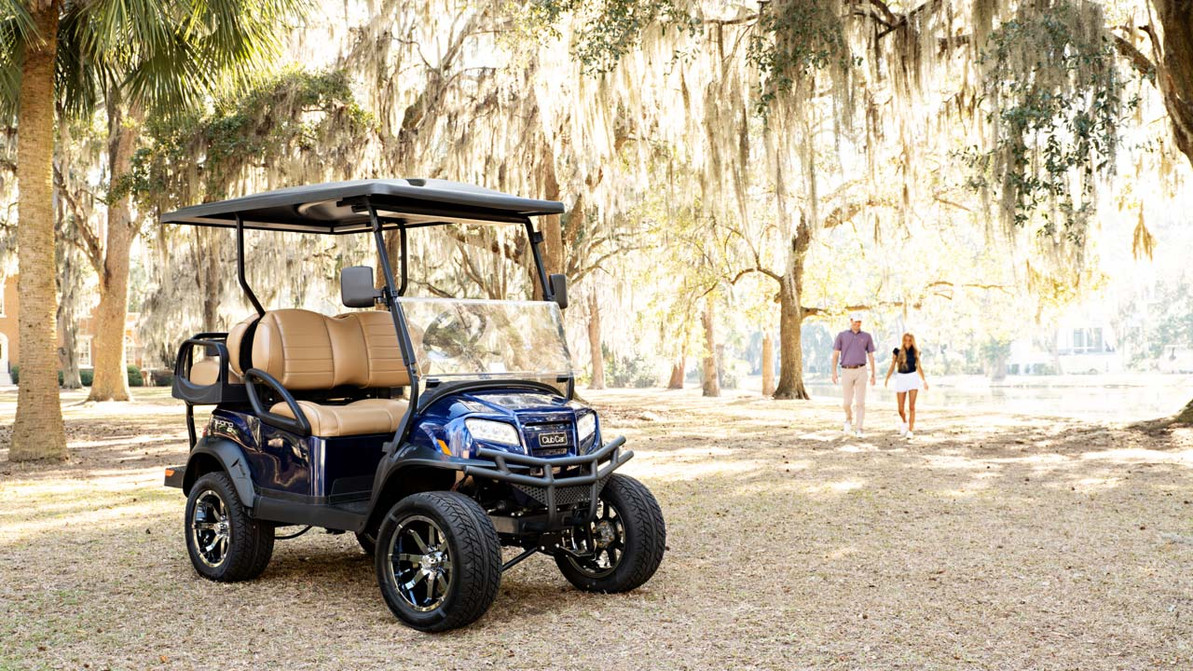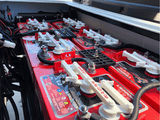Choosing the Perfect Golf Cart Battery: A Comprehensive Guide (UPDATED FOR 2024)
Golf carts are the perfect companions for any golfer. With their compact size and maneuverability, they can easily zip around the golf course, making it a breeze to move from hole to hole without breaking a sweat. However, just like any other electric vehicle, golf carts require a reliable power source to keep them running smoothly. There's nothing worse than being caught on the fairways without a full charge! That's where choosing a reliable golf cart battery comes in.With so many different types of batteries available, from flooded lead-acid to AGM and lithium-ion, it can be overwhelming to know where to start. That's why it's important to consider your specific needs, including battery capacity, voltage, and brand, to ensure that you choose the best battery for your golf cart.
What to Consider When Picking Out a Battery
- Battery Capacity - The higher the Amp Hours rating, the longer the battery lasts. When selecting a battery, consider how often and far you plan to drive your golf cart. The typical runtime for a 36-volt golf cart battery is 1-2 hours, while a 48-volt golf cart battery can provide more extended runtime.
- Voltage - Most golf carts run on 6-volt, 8-volt, or 12-volt batteries. Be sure to choose a battery or battery bank that matches your golf cart's voltage requirements.
- Battery Chemistry (Type) - You have several options to choose from, including flooded lead-acid batteries, AGM, and lithium-ion. We’ve included a few pros and cons of the most common types
A Breakdown of Battery Chemistries:
Like the tides that ebb and flow, these batteries experience a cycle of charging and discharging, with their flooded nature allowing them to withstand the highs and lows of energy demands. In addition, flooded lead acid batteries can be an excellent battery choice because of their cost-effectiveness.
Pros:
- Relatively inexpensive compared to other types of batteries
- They are easily rechargeable by any charger
- Do not require specialized hardware on your cart (usually)
- Easily recyclable at any battery shop
Cons:
- Require maintenance in the form of checking and adding water (see here for our article about battery maintenance)
- Very heavy compared to Lithium-Ion batteries
- More difficult to ship and transport compared to a sealed battery
Common Examples: US 2200 XC2, US125 XC2, US145 XC2, Trojan T105, Crown CR220
With their advanced technology and sealed design, AGM Batteries can withstand harsh conditions and deliver high performance, all while staying cool, calm, and collected. Simple and easy to use due to their sealed nature, AGM Batteries, don't require any water or electrolyte top-ups, which eliminates the need for regular maintenance. Additionally, they are sealed and spill-proof, making them safer to use and transport.
Pros:
- Cheaper than Lithium-Ion
- No maintenance is required
- Longer life then traditional flooded lead acid batteries
- Easily recyclable at any battery shop
Cons:
- Require a specialized charger for both onboard and offboard charging
- More expensive then Flooded lead acid
- Generally cannot be repaired if the case is cracked or broken
Common Examples: US AGM2224, US AGM2000, Trojan 6V AGM
A relative newcomer to the market, Lithium-Ion batteries are popular and new right now, but come with significant pros and cons. These batteries are the same chemistry that is used in modern Electric Vehicles, Phones, Laptops and even some aircraft. They provide a lot of power in a light package, but are very different from the other two chemistries on the market.
Pros:
- Significantly longer lifespan and run time then traditional lead acid batteries
- No maintenance is required
- Light and easier to move, making your cart significantly lighter once installed.
- Some come with technical features that allow them to be connected to a smartphone for real-time monitoring
Cons:
- Require a specialized charger for charging, and any cart built without these batteries originally will need an expensive conversion
- Capacity and lifespan significantly reduced in hot and cold weather
- 2 to 3 times more expensive then traditional lead acid batteries.
- Many low-quality batteries in the market right now, and tough to know what quality the product is with many new companies in the space.
Common Examples: LiTime LifePO, Luminova, MillerTech
Now, It’s Time To Pick Your Battery!
Choosing the perfect golf cart battery is daunting, but Powerstride Battery has got you covered.
Contact us today at 877 576-9379 to speak to one of our experts; we're always happy to answer any questions and help you find the perfect golf cart battery. Don't settle for less than the best – choose Powerstride Battery and experience the difference for yourself!
Recent Posts
-
Powerstride’s Proper Battery Care Tip # 1
New batteries should be given a full charge before useThis is a very “common sense” tip! To ge …Apr 12th 2024 -
Aerial Lift Battery Basics
Aerial Lift Battery BasicsOne of the most important tools you have on your job site might be your ae …Feb 27th 2024 -
Golf Cart Battery Basics (UPDATED FOR 2024)
Golf cart batteries are vital to how well a golf cart runs. The batteries can affect speed, accele …Feb 15th 2024




